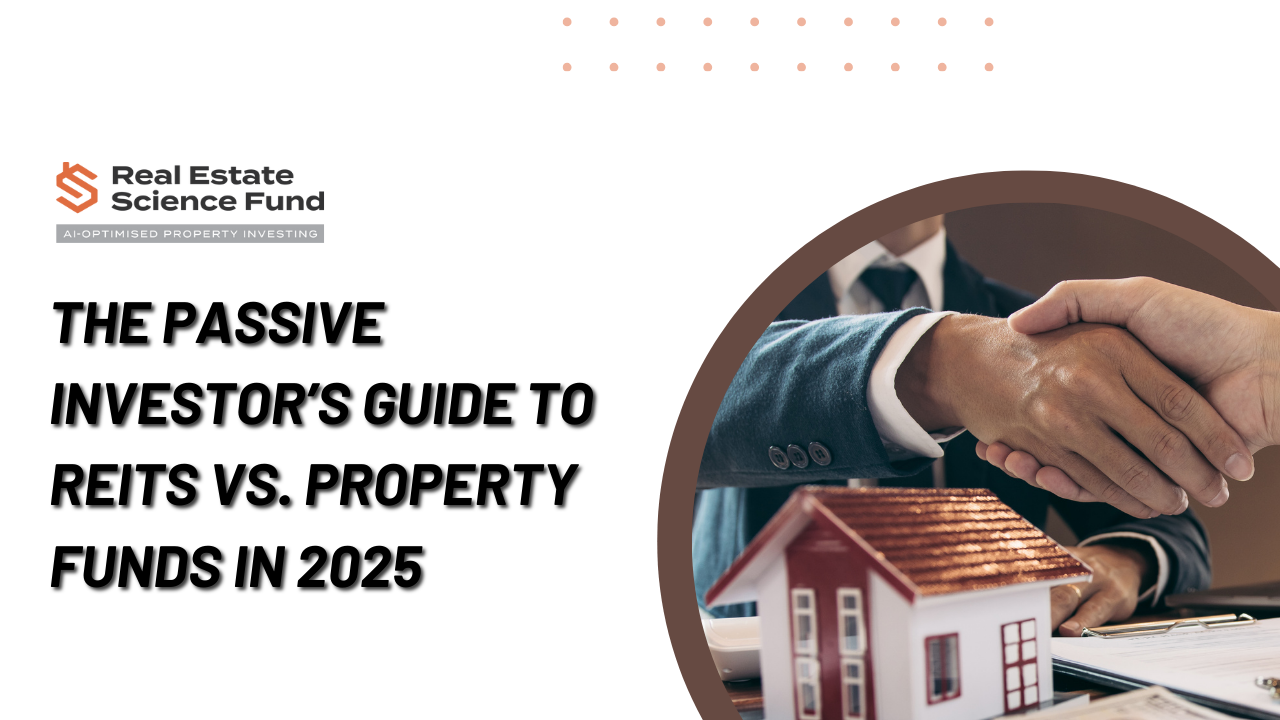For decades, the Australian property narrative was dominated by a...
Read MoreNewsfeed
Share Article
Categories/Tags
Register To Our E-News
Latest News
Beyond the Bank: Creative Strategies for Funding Your Next Property Investment
Staring at a deposit goal that feels miles away? You’re...
Read MoreIndustrial vs. Retail: Which Commercial Property Sector Offers the Best Returns in 2025?
The Australian commercial property landscape is a tale of two...
Read MoreThe Passive Investor’s Guide to REITs vs. Property Funds in 2025
For time-poor investors who want property exposure without the hassle,...
Read MoreInterest Rate Cuts & Property Prices: What to Expect in Late 2025
The Reserve Bank of Australia (RBA) has kept borrowers on...
Read More
The Rise of Secondary Cities: Housing Trends Pointing to Australia’s Next Growth Markets
For decades, the Australian property narrative was dominated by a simple mantra: invest in Sydney and Melbourne. But a profound

Beyond the Bank: Creative Strategies for Funding Your Next Property Investment
Staring at a deposit goal that feels miles away? You’re not alone. With property prices holding strong and traditional lenders

Industrial vs. Retail: Which Commercial Property Sector Offers the Best Returns in 2025?
The Australian commercial property landscape is a tale of two cities. While one sector is riding a powerful, structural tailwind,

The Passive Investor’s Guide to REITs vs. Property Funds in 2025
For time-poor investors who want property exposure without the hassle, REITs (Real Estate Investment Trusts) and property funds offer a

Interest Rate Cuts & Property Prices: What to Expect in Late 2025
The Reserve Bank of Australia (RBA) has kept borrowers on edge for years—but 2025 could finally bring relief. With RBA

The Short-Term Rental Shift: Is Airbnb Still Profitable in Australia in 2025?
The golden age of Airbnb in Australia might be evolving, but it’s far from over. With new Airbnb regulations in
Industry
Investing Smart – The Top 10 Mistakes to Avoid in Real Estate Investment
-
Real Estate Science

Australian real estate investment offers great potential, but common mistakes can cost investors heavily. Learn how to avoid these pitfalls and invest wisely.
Looking for a smart, profitable investment? Well, there’s always a catch when it comes to investing in real estate. People start investing too quickly to gain quick cash and face financial loss in the end. Being patient with no quick methods leads to success in real estate development.
This is where the Real Estate Science Fund jumps in to clear the confusion. This article provides ten different methods to stop yourself from making wrong real estate investments. If you are about to invest, then luckily, you have landed on the right page.
So what are you waiting for? Dive into our informative article, and let’s make your real estate journey profitable.

10 Costly Mistakes to Avoid in Australian Real Estate Investment
1. Not Doing Enough Research
For example, before purchasing a car, you need to ask whether it makes sense to invest without performing a history check. Probably not! A considerable number of people make poor purchasing decisions because they avoid basic homework research before big purchases. Simple research work to learn a car’s historical information will protect you from future expenses and mental stress.
What to Do Instead:
✔ Research the market
✔ Check the neighborhood
✔ Understand the local laws
2. Underestimating Costs
Many beginners underestimate the cost of the property and jump to conclusions, hoping that their real estate process has come to an end. Property ownership requires many unexpected expenses that will unexpectedly exceed the initial property price people have budgeted for.
About 50% of investors tend to overlook these expenses, which can lead to unexpected financial stress down the line.
Common Costs Investors Forget:
❌ Property taxes
❌ Insurance
❌ Maintenance and repairs
❌ Legal and agent fees
❌ Mortgage interest
What to Do Instead:
✔ Create a budget that includes all expenses.
✔ Have an emergency fund for unexpected repairs or vacancies.
✔ Make sure the rental income covers all costs and leaves room for profit.
3. Choosing the Wrong Location
Your home’s neighborhood has bigger influence on its value than its design and construction. Mid-century style homes will not raise in value and remain unsold if placed in a poorly designed neighborhood.
Choosing the right spot is key to making a smart investment!
Why Location Matters:
❌ Low demand = difficulty renting or selling
❌ Bad neighborhood = lower property values
❌ Poor transport links = tenants looking elsewhere
What to Do Instead:
✔ Invest in areas with job growth and development.
✔ Look at infrastructure plan
✔ Visit the area at different times of the day to check noise, safety, and traffic.
4. Letting Emotions Control Decisions
The plan to acquire a house requires different steps compared to real estate investment buying. An individual should analyze numerical data before deciding to buy property since it requires more reason-based than emotional decision-making.
What to Do Instead:
✔ Think like a business owner
✔ Stick to your budget
✔ Analyze potential profits
Lesson: Your goal is to make money, not find your dream home.
5. Not Having an Exit Strategy
What do you do if the market crashes? The need to sell a property rapidly or move in an unfavorable market situation presents itself to you. Many people buy real estate properties without forming an exit strategy despite the important nature of these questions. An exit plan stands as the most essential factor for every investment decision.
So, take a little time to think ahead and protect your investment!
What to Do Instead:
✔ Always buy with resale value in mind.
✔ Have multiple exit plans
✔ Avoid properties that are hard to sell or rent.
Lesson: Hope for the best, but prepare for the worst.
6. Taking on Too Much Debt
Taking a loan provides an excellent investment opportunity for real estate and stock ventures. Estimating your borrowing power correctly is essential since it avoids the risks of over-leveraging. Being risk-exposed in this situation because interest rates tend to rise alongside decreases in rental income.
So, it’s really important to find a good balance when using borrowed money to invest.
What to Do Instead:
✔ Don’t max out your loans
✔ Ensure your rental income can cover mortgage payments even if rates increase.
✔ Have a backup plan in case of job loss, tenant issues, or unexpected repairs.
7. Poor Tenant Management
Buying an excellent property creates a magnificent investment opportunity that transforms into a nightmare because of undesired tenants. Dealing with tenants who frequently pay their rent late and destroy property or disobey lease agreements is a nightmare scenario for property investors. Your investment earnings may turn out to be less than what you spend because of unmanageable frustration.
After all, a happy rental experience starts with great tenants!
What to Do Instead:
✔ Screen tenants properly
✔ Have a strong lease agreement
✔ Respond to tenant issues quickly
Lesson: The right tenant can make your investment profitable; the wrong one can ruin it.
8. Falling for Get-Rich-Quick Scams
The likelihood increases that any investment opportunity that surpasses reality is not authentic. People tend to get restless during “once-in-a-lifetime” events before evaluating all aspects of a chance. Such monetary losses become major issues that result in permanent financial damage to investors.
If something seems too good to be true, it probably isn’t!
What to Do Instead:
✔ Be skeptical of high returns with no risk
✔ Work with trusted professionals
✔ Read contracts carefully
9. Neglecting Maintenance & Repairs
Taking care of a property is important because it helps keep its value high and brings in good tenants. Landlords choose to cut costs through neglecting maintenance, although this results in greater financial issues down the line.
What to Do Instead:
✔ Fix minor issues immediately
✔ Inspect the property regularly
✔ Budget for maintenance costs
10. Trying to Do Everything Alone
When starting as an investor, many people believe they need no help in real estate management. These new investors attempt property research to secure good deals while also attempting self-management of their properties. The real estate industry operates as a team-based activity.
Teamwork can open up new opportunities and help you avoid mistakes along the way.
What to Do Instead:
✔ Work with experts
✔ Learn from experienced investors
✔ Don’t be afraid to ask for help
Final Thoughts: Play the Long Game
Real estate investing achieves success through intelligent choices, delayed action, and the acquisition of knowledge from failed attempts. Excluding these 10 pitfalls will ensure that you outperform most property investors.
Want more expert insights on real estate? Explore our website and stay ahead of the game!
Now, go out there and invest wisely!



